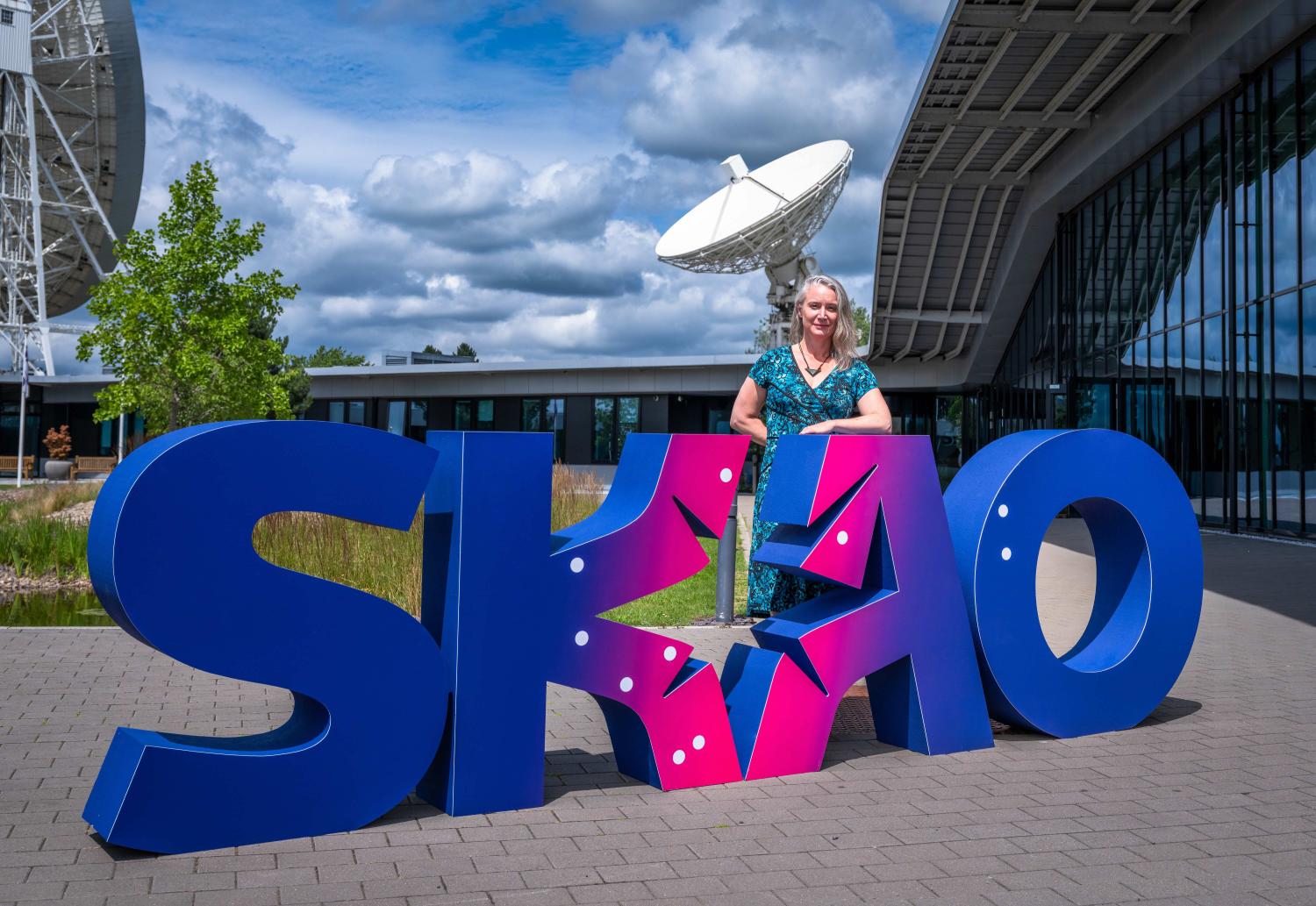Prof. Jessica Dempsey to be next SKA Observatory Director-General
Prof. Dempsey was appointed following a thorough selection process and final decision by the SKAO Council, the Observatory’s governing body representing each of its 12 member states.
She will succeed Prof. Philip Diamond, who will complete his term after 14 years at the head of the SKAO and its predecessor, the SKA Organisation, in May 2026.
Currently the Director of the Netherlands Institute for Radio Astronomy (ASTRON), Prof. Dempsey is a renowned radio astronomer with extensive experience in senior leadership, having previously been Deputy Director of the East Asian Observatory in Hawai’i, USA.
In addition to her impressive research career, Prof. Dempsey has demonstrated a commitment to creating greater diversity, equity and opportunity at all levels of astronomy, and has spoken extensively about creating inclusive practices in the workplace. She has been the Chair of Ethics in Astronomy at Radboud University in the Netherlands since 2023.

The Director-General is the SKAO’s most senior position and the intergovernmental organisation’s legal representative, with responsibility for ensuring the successful delivery of the SKAO’s construction and operations phases, and leadership of the Observatory’s international staff distributed across multiple sites in three countries.
“The calibre of candidates for this role was extraordinarily high. It is a unique challenge to lead the SKAO, an observatory involving 16 partner countries, tasked with breaking new ground in our understanding of the Universe and ensuring that wider benefits are felt across society,” said SKAO Council Chair Dr Filippo Zerbi.
“Jessica is not only an extremely capable leader, but has also demonstrated a deep commitment to the SKAO’s success and its values as Director of ASTRON. I extend my congratulations to her on behalf the whole SKAO Council.”
As the next Director-General, Prof. Dempsey will oversee the Observatory as it transitions into its science verification phase, as well as the continued construction of both arrays in Australia and South Africa. Science verification is when the science community will gain access to early SKAO data, due to begin in the first half of 2027.
“I am amazed to be asked to take up this role, especially at such a vital time for this wonderful Observatory. I am humbled, as Phil is a tough act to follow, and excited to join an incredibly talented and dedicated global team. We are building an unprecedented discovery engine that will transform what we understand of the Universe, and I am most thrilled at the opportunity to ensure that the SKAO has a true global impact. The SKA project is a human endeavour, and will be a human achievement.”
Born in 1978, Prof. Dempsey studied astrophysics alongside theatre and film science at the University of New South Wales in Sydney, Australia, choosing a career in astronomy after a research internship in Antarctica.
Prof. Dempsey and fellow University of New South Wales graduate Jill Rathborne were the first Australian female scientists to work at the geographic South Pole, in January 2000. She spent five summers there building site-testing instruments and a robotic telescope, and wintered at the South Pole station in 2005 for the Arcminute Cosmology Bolometer Array Receiver cosmic microwave background (ACBAR CMB) experiment.
After joining the staff of the James Clerk Maxwell Telescope (JCMT) in Hawai’i as an instrument scientist in 2007, she became Head of Operations and later Deputy Director as it transitioned to operations through the East Asian Observatory. She became Director of the Netherlands Institute for Radio Astronomy, ASTRON, in May 2022.
Prof. Dempsey’s research interests focus on wide-field surveys of the diverse molecules in the galaxy at radio wavelengths. She was a member of the Breakthrough Prize-winning Event Horizon Telescope team, which captured an image of a black hole for the first time.
Prof. Diamond said: “This is a demanding role, with the need to balance scientific, political, diplomatic, financial and many other considerations, but I have full faith in Jessica’s ability to lead this extraordinary organisation through its next chapter.
“The Observatory will be in very good hands.”




